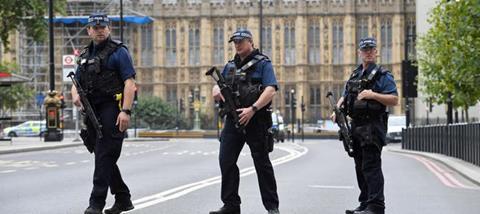
The Westminster Parliament is a popular symbol of British democracy which makes it an obvious target for terrorists. At 7:37am on Tuesday Salih Khater drove his Ford Fiesta into Parliament Square, scattering a group of cyclists and seriously injuring one of them before crashing into a barrier outside the St Stephen’s entrance to the House of Commons.
Mercifully, no-one was killed unlike a similar incident in March 2017 when Khalid Masood injured 50 and killed 6 people before being shot by the police. Masood was a jihadist linked to Islamic State, seeking revenge for UK involvement in the Middle East. Khater’s motives are not known yet and he does not appear to have planned his attack as carefully as Masood had. He travelled to London from his Birmingham home on Monday and drove around Westminster for more than an hour before making his attack.
Parliament’s security barriers were sufficiently robust to stop the attack but had Khater’s car carried a bomb the outcome could have been much more serious. Khater was known to the police in Birmingham but not to MI5. However, the use of a vehicle as a weapon raises serious issues for the security services and some are talking about banning traffic from proximity to Parliament.
Attacks on Parliament are not just a modern phenomenon. Every November 5th we remember Guy Fawkes failed attempt to blow up Parliament. In 1979 a car bomb planted by the INLA was used to kill Airey Neave MP, the Conservative spokesman on Northern Ireland, as he drove out of the Parliamentary estate. Since the 2017 attack security measures have been substantially strengthened and Tuesday’s attack demonstrated their effectiveness.
The public gallery in the House of Commons now has a bomb-proof screen to prevent any attacks in the Chamber. Visitors to Parliament have to pass through thorough security procedures and Parliamentary staff and press personnel have to be checked by the security services before being issued with passes.
These measures help to keep Parliament open to the people whom it exists to serve and that is important. At the same time, those who are elected to represent us should not be open to terrorist attacks or the acts of deranged individuals. The murder of Jo Cox MP in her Batley and Spen constituency in 2016 and the knifing of Stephen Timms in his constituency surgery in 2010, in revenge for his vote for the Iraq war, both demonstrate that total security for MPs is not possible.
These incidents remind us that security is about more than barriers. The police who manned the barriers on Tuesday responded rapidly and effectively to arrest Khater and prevent him from causing any more harm. Their lives are potentially at risk as the killing of PC Keith Palmer by Khalid Masood in 2017 demonstrated. Ultimately, there is no guaranteed defence against a well-planned attack by a determined terrorist. Mercifully Tuesday’s attack was not well-planned but it reminds us to value those who represent us and those who guard them too.
SPECIAL: Subscribe to Premier Christianity magazine for HALF PRICE (limited offer)





























